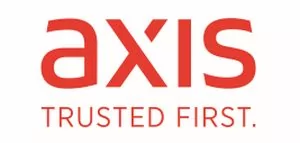- within Finance and Banking topic(s)
- within Insolvency/Bankruptcy/Re-Structuring and Corporate/Commercial Law topic(s)
- with readers working within the Securities & Investment and Utilities industries
Introduction
Mauritius has earned globalrecognition forits swift and determined reforms in AntiMoney Laundering and Countering the Financing of Terrorism (AML/CFT). In a remarkably short span,the country exited the Financial Action Task Force (FATF) grey list —an achievementfew jurisdictions accomplish with such speed. By September 2022, Mauritius had achieved "Compliant" or "Largely Compliant" ratings across all 40 FATF Recommendations,reflecting a strong regulatory framework and unwavering political commitment.
As the country prepares forits next Eastern and Southern Africa Anti-Money Laundering Group (ESAAMLG) Mutual Evaluation in 2027, a less visible but equally criticalthreat demands attention: Proliferation Financing (PF).Often overshadowed by money laundering and terroristfinancing, PF poses a globalrisk with directlocal implications.
Proliferation Financing may be a quieterrisk yetitis equally consequential, if not more. This article puts PF in the spotlightthatits urgency demands.
UNDERSTANDING PROLIFERATION FINANCING AND WHY IT MATTERS
Proliferation financing refers to the provision of financial services orfunds used in the development, acquisition, or transportation of weapons of mass destruction (WMDs), including nuclear, chemical, and biological weapons.Under the Mauritius'UnitedNations Sanctions Act 2019, "proliferation" includes not only the movement of WMDs but also related technicaltraining, advice, service, brokering or assistance
TO WHAT EXTENT IS MAURITIUS EXPOSED?
As a well-established international financial centre, Mauritius offers services in trade finance,structuring and crossbordertransactions. These strengths also create vulnerabilities. The same infrastructure thatfacilitates global commerce can be exploited to mask PF-linked transactions.
PF exposure is often indirect. Financial institutions may unknowingly facilitate PF through intermediaries, layered ownership structures ortrade in dual-use goods. Complex corporate vehicles and trusts can obscure beneficial ownership, making it harderto identify links to sanctioned parties.
A major concern lies in the complexity of sanctions regimes. The country is obligated to enforceUNSecurity Council sanctions but many high-risk entities are designated only by national authorities such asOFAC (US),the EU, ortheUK. A clear example ofthis is the wave of EUandU.S. sanctions against Russian individuals and entities following the conflictinUkraine. While many ofthese sanctioned parties do not appear onUnitedNations sanctions lists,they are prohibited underU.S. and EUregulations. If a Mauritian financial institution transacts with such individuals, even indirectly, itrisks becoming entangled in secondary sanctions,reputational damage or de-risking by international correspondent banks.
TO WHAT EXTENT IS MAURITIUS EXPOSED? (CONTINUED)
Even if an institution's operations seem "local, " the nature of modern finance is inherently international. A payment routed through aU.S. correspondent bank, a fund transferinvolving a European clearinghouse or a client with links to a high-risk country can alltrigger extraterritorial sanctions obligations.
This highlights a vital point: compliance with domestic law alone is not enough. Financial institutions must also understand global sanctions landscapes.
Itis worth highlighting thatin the month of July 2025 alone,the Financial Services Commission of Mauritius has suspended 13 licences of companies involved in shipping and mostlikely connected to sanctioned parties/activities.
THE PROGRESS ACHIEVED BY MAURITIUS ON PROLIFERATION FINANCING CONTROLS
Mauritius has taken meaningful steps to strengthen its PF controls. The Sanctions Act 2019 laid the legal foundation, mandating the implementation ofUNresolutions and defining proliferation comprehensively. TheNational Sanctions Secretariat(NSSec) was established to coordinate targeted financial sanctions, including those related to PF.
Mauritius' active engagement with ESAAMLG and its improved ratings across all FATF Recommendation, including Recommendation 7, previously marked "Non-Compliant" , demonstrate its commitmentto reform. The country's removal from the FATF grey listinOctober 2021 was more than symbolic; itreflected real improvements and these reforms have laid the foundation for a more resilientfinancial system.However,the journey is ongoing. As global threats evolve,the jurisdiction must continue refining its approach, expanding PF-specific guidance and deepening collaboration with international partners.
POTENTIAL ENHANCEMENT
Despite progress,there is room for enhancement. PF awareness across sectors is low, with many institutions treating it as a secondary concern. Sanctions screening is often limited toUNlists, overlooking designations from OFAC,the EUand theUK. This narrow approach leaves institutions exposed to compliance and reputationalrisks.
Dual-use goods present another challenge. Identifying items that serve both civilian and military purposes requires technical expertise that many institutions lack. Trade finance transactions involving such goods may go unnoticed without propertraining and sector-specific guidance.
Ownership obfuscation is a persistent vulnerability. PF networks frequently use shell companies and layered structures to concealtheiridentities. While Mauritius has made strides in transparency, itis importantthat proper guidance is provided on the identification of beneficial owners for complex structures.
These gaps are notfailures,they are opportunities for strategic enhancement. By investing in awareness, expanding sanctions coverage and building technical capacity, Mauritius can furtherfortify its defences against PF.
WHAT MAURITIAN FINANCIAL INSTITUTIONS MUST DO RIGHT NOW!
To strengthen PF compliance, institutions must embed PF risk assessments into their AML/CFT frameworks. PF should be treated as a core threat, not a regulatory footnote. Policies, procedures and controls mustreflect PFspecific risks and notjustrestricted to ML and TF.
Sanctions screening must go beyondUNlists to includeOFAC, EUandUK designations. Staff should also be trained to recognize PF typologies such as transactions involving dual-use goods, unusualtrade routes and complex ownership structures.
Enhanced due diligence is essential for clients in high-risk sectors like chemicals, shipping, logistics and aerospace. Institutions must verify end-use certificates and understand supply chain dynamics. Collaboration with regulators and industry bodies is equally important.
According to the guidelines on the implementation oftargeted financial sanctions issued by theNSSec, in transaction monitoring, some ofthe most common screening data points include:
- Parties involved (remitter, beneficiary, otherfinancial institutions involved in the transaction, intermediaries)
- Vessels and International MaritimeOrganization (IMO) numbers (unique identifier number assigned to each vessel) – especially relevantfor DPRK.
- Bank names, bank identifier codes (BIC) and otherrouting codes
- Free textfields (e.g. paymentreference)
PF COMPLIANCE IS A CONTINUOUS JOURNEY
Mauritius has shown its capacity forreform. Its AML/CFT achievements are impressive—but PF is the nextfrontier. As typologies evolve and global standards shift, financial institutions must expand their compliance horizons.
This is not a matter of deficiency; itis rather a natural progression! Institutions that act now will be better prepared fortomorrow's challenges. Mauritius has the tools,talent and resolve to lead. By embracing PF compliance as an ongoing journey,the country can reinforce its reputation and safeguard its role in the global financial system.

JOIN THE CONVERSATION THIS OCTOBER
To advance our collective understanding of proliferation financing risks—especially those tied to dual-use goods and emerging compliance challenges—I warmly invite you to join my session atthe upcoming conference thisOctober.
Together, we shall explore practical insights, evolving typologies, and sector-specific vulnerabilities that are criticalto safeguarding Mauritius'financial system.
By engaging in this dialogue, we not only shall be able to bolster our national defences but more importantly contribute meaningfully to global security and regulatory resilience.
The content of this article is intended to provide a general guide to the subject matter. Specialist advice should be sought about your specific circumstances.
[View Source]

